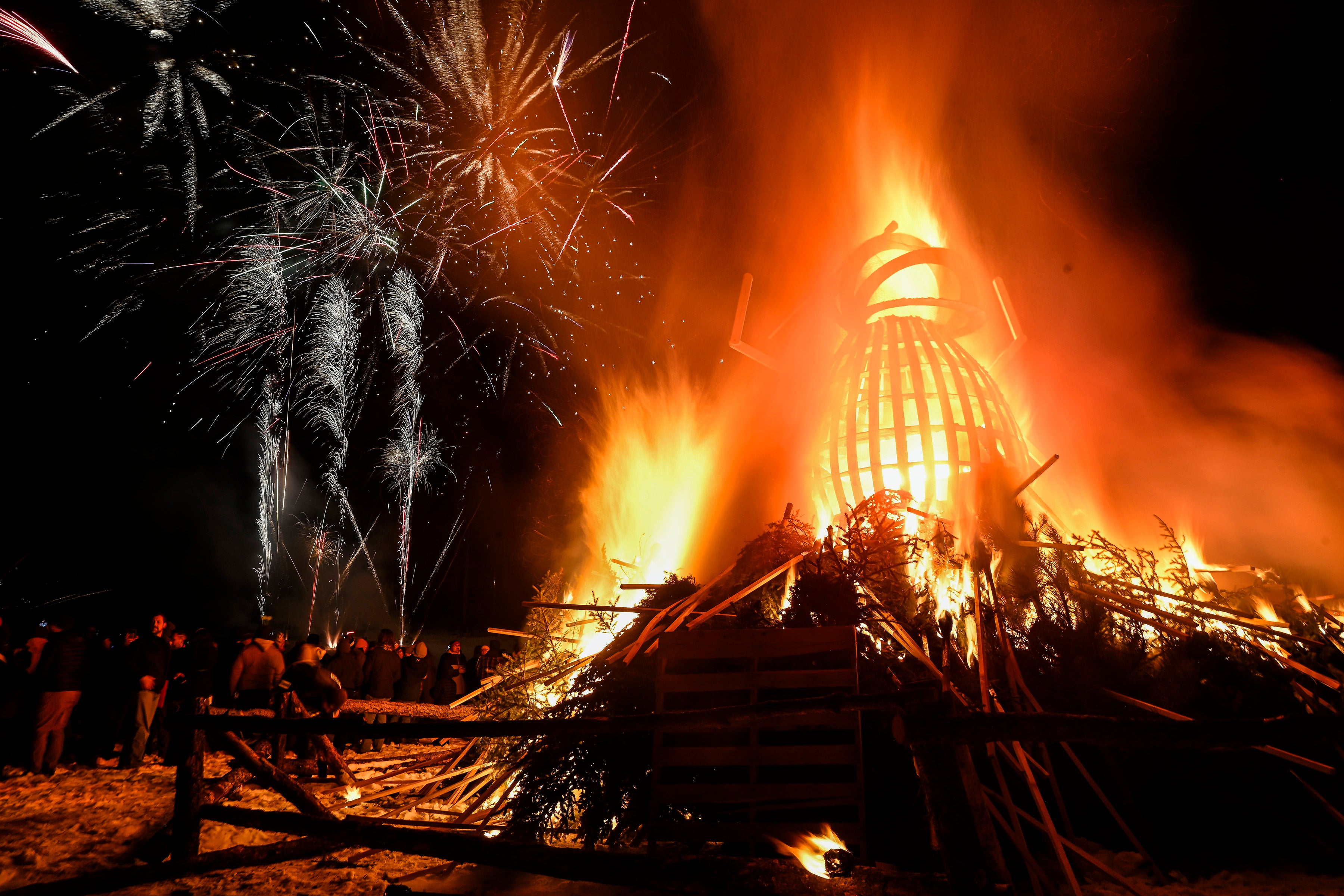‘Burn, beetle, burn’: Why hundreds of people are torching an effigy of destructive bug in South Dakota town
In what’s become an annual winter tradition, hundreds of people carrying torches set fire to a giant wooden beetle effigy in Custer, South Dakota, to raise awareness of the destructive impact of the mountain pine beetle on Black Hills forest land

In what's become an annual winter tradition, hundreds of people carrying torches set fire to a giant wooden beetle effigy in Custer, South Dakota, to raise awareness of the destructive impact of the mountain pine beetle on forest land in the Black Hills.
Custer firefighters prepared and lighted the torches for residents to carry in a march to the pyre Saturday night in the 11th Burning Beetle fest, the Rapid City Journal reported.
People set the tall beetle effigy on fire amid drum beats and chants of “Burn, beetle, burn." Firefighters kept watch, warning participants not to throw the torches, even as some people launched the burning sticks into pine trees piled at the base of the beetle. Fireworks dazzled overhead.
The event, which includes a talent show and “bug crawl,” supports the local arts.
The US Forest Service calls the mountain pine beetle “the most aggressive, persistent, and destructive bark beetle in the western United States and Canada." The Black Hills have experienced several outbreaks of the beetle since the 1890s, the most recent being from 1996-2016, affecting 703 square miles (1820 square kilometers), according to the South Dakota Department of Agriculture and Natural Resources.
Bookmark popover
Removed from bookmarks